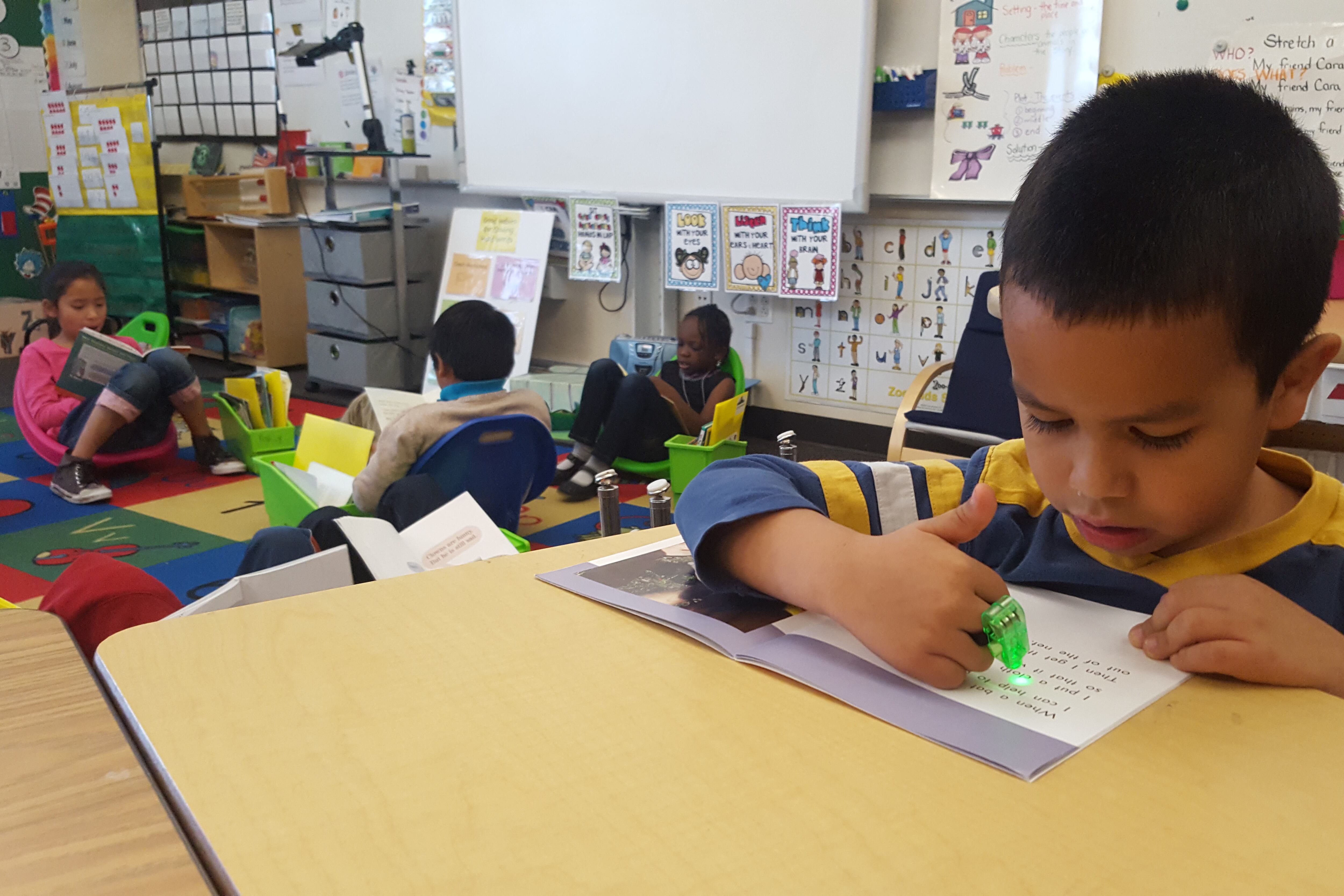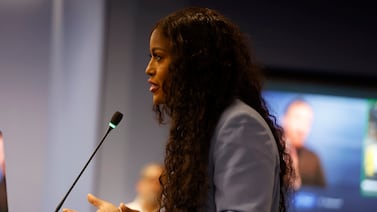Creating mentoring programs for teachers, not just those who are new, training advocates who can represent educators of color, and requiring districtwide training. Those are some of the strategies that a group of Aurora educators proposed to improve staff diversity in the district.
The Aurora school board in February passed a resolution to improve the hiring and retention of educators or color. Still, teachers of color continued to speak to the board for months after, asking for a more detailed plan.
In April, Aurora joined some Denver schools in working with Promise 54, a national nonprofit helping schools improve their diversity, equity, and inclusion.
As part of that work, Aurora teachers and administrators have spent several months surveying district employees and holding focus groups to talk about diversity problems and how to solve them.
On Tuesday, the group presented a draft action plan to the school board including long-range work as well as more immediate steps to take. While the ideas lack funding, the staff told board members that as next school year’s budget is created, the board can make funding this work a priority.
The district, which serves one of the most diverse student populations in the state, has previously considered teacher diversity a priority as research shows that students of color can benefit from having teachers of color.
This year, about 20% of Aurora’s licensed staff members, including teachers, are employees of color. Approximately 85% of the district’s students are students of color.
But the working group has identified a lack of consistency in efforts, as well as a lack of a clear definition of goals, as part of the challenge.
One of the first parts of the plan the group presented includes clarifying the district’s beliefs, definitions, and goals around this work.
“This is not something that’s simplistic,” said Kimberly Ausman, a district teacher who is part of the working group. “It’s going to take at least a year to really get it going.”
Ausman said that while the group has done focus groups with some teachers, it also wants to talk to community members, other staff, and students.
“Obviously the bottom line is getting our students, moving them forward,” Ausman said.
The steps identified as “quick wins” because they may have an immediate impact, were creating affinity groups so educators can connect and collaborate, creating an educator of color networking event, creating an interest form that potential candidates can fill out before applying for a job, and training staff as hiring ambassadors to help the district recruit teachers of color.
In the next year, the plan includes creating a process so that staff of color who experience bias have a way to raise their concerns, and have a path to resolutions, as well as developing mentoring programs for all teachers, including veteran teachers, not just new recruits, to improve retention. The group also plans to work with partners to examine grow-your-own teacher programs that might work for the district.
“We have to make sure people aren’t walking out the door while we’re also trying to recruit people,” said Biaze Houston, the district’s director of assessment literacy and instruction.
Finding culturally responsive training that would be required districtwide was identified as work for Year 2 of the plan.
One board member, Nichelle Ortiz, asked if the group had looked into incentives such as stipends or affordable housing for teachers-in-training who would commit to working for the district.
“Those are all definitely possibilities,” said Christie Imholt, the district’s policy director who is also part of the work group. “As we learn from focus groups and learn what’s going to help support folks, those are all things we can look at.”
The group now expects to gather feedback from Promise 54 on the plan. The group will also continue to receive training from Promise 54 to continue the work. Internally, the group will also continue holding focus groups to “dig deeper” on identified issues, and start looking at ways to roll out the initial proposed actions.







